Sariya Saburskaya: ‘We must create conditions for a woman to want to have a child’
Tatarstan's ombudswoman on the humanitarian mission of the service and family problems
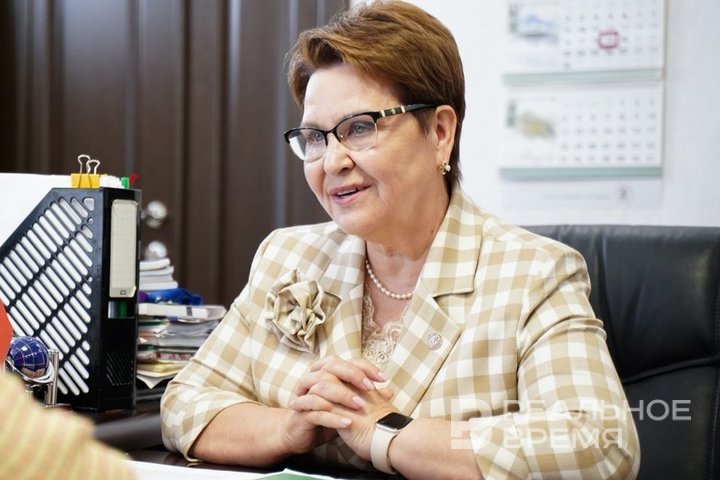
Human rights ombudswoman of the Republic of Tatarstan Sariya Saburskaya talks about the assistance her service provides to prisoners, the problems foreign students face in Kazan and her attitude to the topic of abortions that has recently stirred up Russian society.
“Our task is to remove them from the drug register”
Mrs Saburskaya, what is the humanitarian mission of the ombudswoman about?
One of its components is working with the Federal Penitentiary Service. Of course, we hold monthly receptions via teleconference on Saturdays, because people work so that those serving sentences can get to the reception. But for 5 years now, together with the Ministry of Health Care, the drug treatment centre and Rose of the Winds, we have been running a very good project — for the rehabilitation of people suffering from drug addiction and alcoholism. They are in a special detachment, a separate room was specially allocated for them, where rehabilitation takes place over the course of six months.
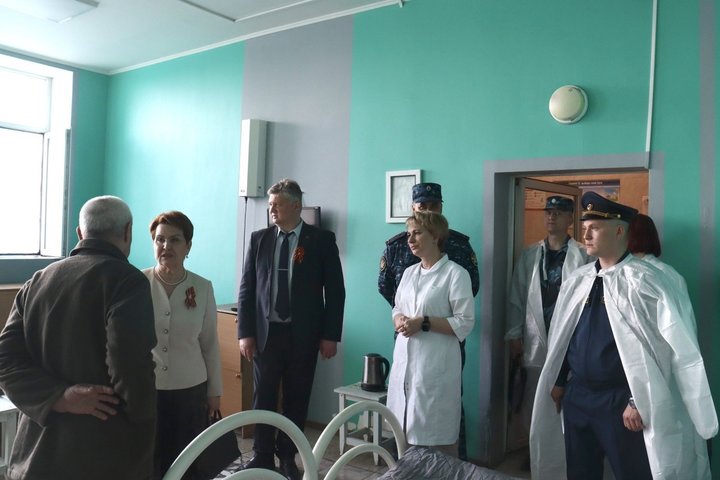
They say that there are no former drug addicts and alcoholics. What can be considered a measure of success in this work?
Today, 40 people are undergoing rehabilitation at the colony No. 19. There are also those who have completed it, but live and work in this team. And in April, already in Kazan, at the rehabilitation centre Rose of the Winds, we had a meeting with the guys who were released, because our task is also to remove them from the drug register. This is one of the most important points, because of this a person may not be hired. Those who were at the meeting are in stable remission. Some came with their families, with children, and it was so nice to talk to them! Yes, these are people who committed serious crimes because of drug addiction, but today they have a different life. They look at themselves with different eyes and think with different criteria. To get out of this hole, you need a lot of willpower, some can’t stand it, they quit their classes, there are such people too. But there are also those who cope with addiction. Now we are planning to start such work in the new pre-trial detention centre.
Is such work being carried out in other Russian regions?
No, no one else has such a project yet. In other regions, they come to the prisoners once a month, gather them in the hall, tell them that drug addiction is bad. And here, psychologists, drug therapists, and those who were previously drug addicts work with them from morning to night. Some of my colleagues have already come to Kazan to learn about our experience and use it as a model in their regions.
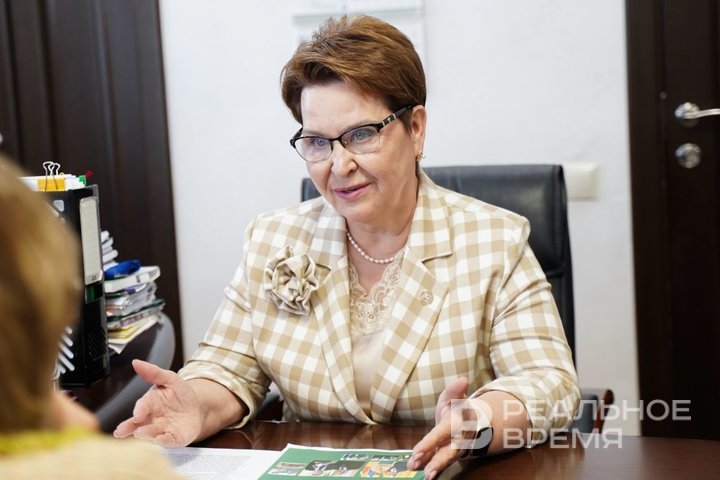
But, as I understand it, your work with prisoners is not limited to this?
We provide them with legal assistance. Last year, we recorded a dozen videos with specialists — a lawyer, a notary, a deputy minister of labour, and me — they are shown there on internal cable television so that people understand how they can solve their problems.
“Every year we try to introduce new areas of work”
How do you organize your work with the republic’s universities?
For the last two years, we have been providing legal assistance to students from other countries. We have more than 16 thousand such students in universities. We tell them what they need to know about our country. So that it doesn’t turn out like this: I came to colony No. 2. And there’s a student from Egypt, he’s sitting there for drug trafficking and he says he wants to stay in Russia. Because he’ll have to sit here for 8 years, and then in his own country for the same amount of time, for disgracing his homeland. And I explain that it’s impossible to stay — that’s our law. We tell foreign students about regulations, how and when to register, what medical care they can get. Now we’ve prepared these materials for the Ministry of Education so that they can broadcast them. In general, we try to introduce new areas of work every year.
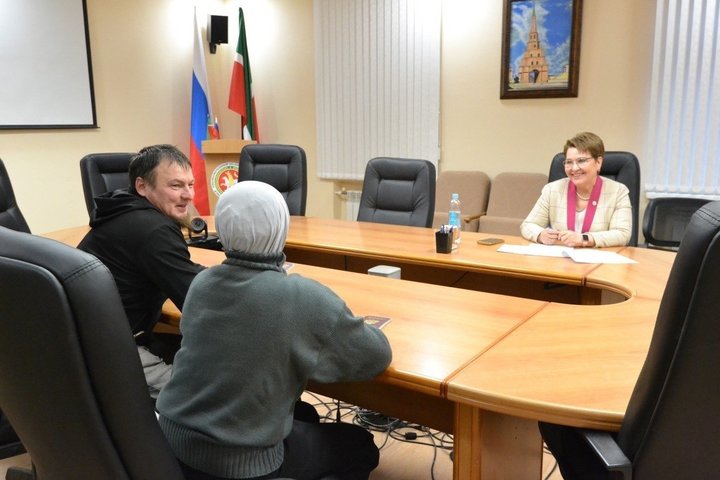
For example, we had this area — family studies, when it wasn’t in schools yet. At the instigation of the head of the Tatarstan regional branch of Russian Family Lidiya Kartseva, who proposed a joint project. She developed a program, a curriculum, and on Saturdays, married couples came to us on the advice of the Civil Registry Office. We invited specialists, for example, a gynaecologist told how a woman's body changes during pregnancy, a psychologist — about how to build a family for people with different traditions and ways of life. After all, in reality it is not easy: a Russian and a Tatar woman or a Russian and a Tatar man — what to name a child, how to find common ground? Here is a real life story: a Russian wife and her mother-in-law secretly baptized a child from her Tatar husband and the family fell apart. Because it was unfair. And when such classes were held at school, the kids said that they had no idea what a family should be like!
“I can't distance myself”
How do you have the strength and energy for all this?
You know, sometimes I come home and cry. I receive patients and cry: I feel sorry for the people. When all this falls on you, this is probably the hardest part of the job. Because the person told, shared and unburdened himself. And I come home with this. My daughter, granddaughters ask what happened, but nothing happened! I start telling them what happened today, and my daughter says that I need to distance myself a little. But I can't distance myself. It's impossible. I say, then I don't need to work. We live someone else's life, worry about someone else's problems, especially if they are related to the special military operation.
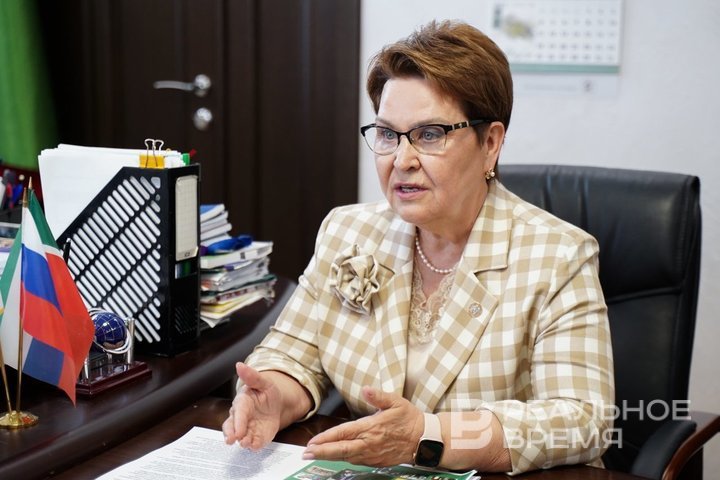
You were born, grew up, studied and worked in a different society, under a different social system, were both in the Komsomol and in the party. Did this experience help you?
Of course! I have always been a very big social activist. The guys and I were the first to come to school and the last to leave. I was a pioneer leader, and I went to the junior classes. I helped those who were lagging behind. When I finished year 10, I had two lagging students, my classmates, a boy and a girl. I prepared for the exam with them. I went to the choir, to the drama club, I read a lot — this was accepted in the family. And this community work later, of course, helped me a lot, because it developed an attitude to life, an attitude to people. And my parents taught us, children, especially my mother, that we must see people, we must help them, we must never put ourselves above others and we must always learn.
You worked as a history teacher — this is a very important subject, including because knowledge of history determines not only the attitude to one’s country, but also one’s outlook on life. What do you think about modern history lessons?
I remember how I taught lessons dedicated to the Great Patriotic War. They lasted a whole quarter in the tenth grade. The children prepared special projects, stories, poems and songs for them. And the children found it interesting and liked it. Today, when I see the curriculum for the history of the Great Patriotic War, I am horrified: we studied all the stages, all the important events — when the turning point began, the Battle of Moscow, the Battle of Kursk, the war in the rear, the partisan war, labour exploits. And we need to do the same today!
“We should not discourage abortion”
The problems of birth rate are actively discussed in society now, we hear proposals to encourage, including financially, early birth of children and to promote the rejection of abortions. Do you think this is the right tactic in the fight for population growth?
I know real examples from the time when abortions were banned, and women died or were left in a very serious condition after an underground abortion. A very large number of women died. Never before has a ban led to positive results. We have been through this. There was a ban on alcohol — how many tragedies, poisonings by surrogates were there? There was a ban on abortions — how many women went to midwives and died? Therefore, we should not discourage abortion — we must create conditions for programs, national projects aimed at improving the demographic situation, protecting the health of mothers and children to work.
We must ensure an improvement in the quality of life of families, create conditions for a person to have good housing. So that he doesn't move from one apartment to another and pay crazy money, but so that he has his own home. We must give people jobs that are decently paid. We must give them the opportunity to choose work so that they not only like it, but also pay decently. We must create conditions so that a woman can undergo an examination and understand that she will give birth to a healthy child. Today, programs for young families, students, housing certificates, and so on are appearing. We must create conditions so that a woman wants to give birth and raise her child normally.
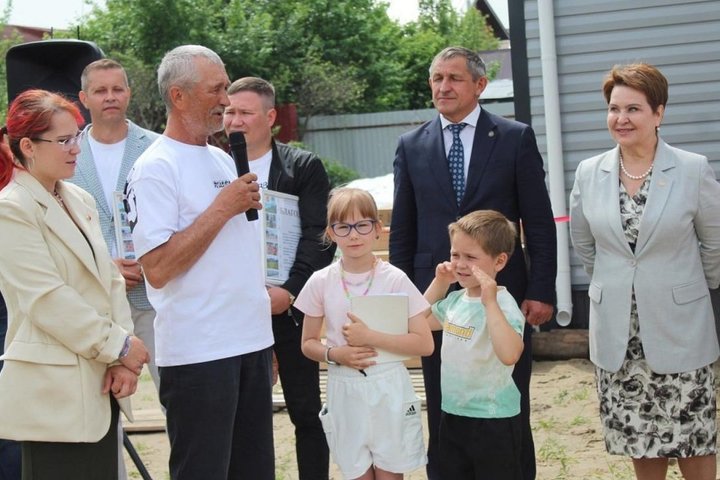
And another initiative — to encourage the birth of children almost at the end of school? When the girl does not yet have any special education or profession?
If she wants to study, get a profession, but got married, should we tell her: “Don't give birth, first finish college?” No, we must create conditions for her, support the young family at the moment of its formation, including financially, and give certain preferences so that a young woman could not only give birth, but also raise a child. I got married early, gave birth when I was studying at a university, and my mother brought my daughter to the institute so that I could feed. It was difficult, but today she is so grown up! And I, a grandmother, could not help her like that — grandmothers work today. Therefore, the state should come to the aid of the family. This is my personal opinion.
“There is not always an understanding of the applicant himself”
Lawyers often say that the law and justice are different things. Do people come to you more often for the law or for justice? Were there situations when one contradicted the other? How did you find a way out?
We have complex questions, and there is not always an understanding of the applicant himself — he wants, he should, he needs. But there are norms, legislation. And we cannot go against them. We try to explain to the person that it is impossible. No, he says, do it. For example, such a situation now with one family case — the parents are against children communicating with their grandparents. There is a court decision in favour of the grandmother, but you can't force the child! Such situations, unfortunately, happen. There are legal issues, housing problems. For example, if a person is not on the waiting list for better housing conditions, then it is impossible to resolve this issue. Or such a moment — smells from another apartment come into the apartment, the Russian consumer rights protection watchdog’s employees must come and take measurements, but the owner of the smelly apartment does not let anyone in. And that's it — what can be done here? There are quite a lot of questions, problems that, in principle, cannot be solved.
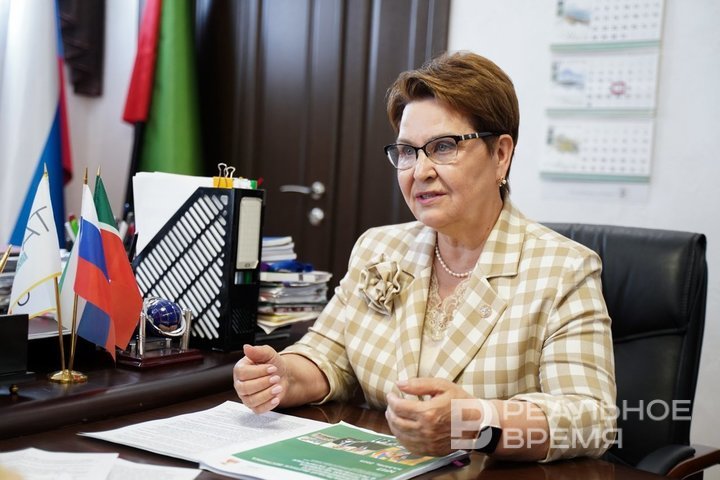
And when do you see a systemic problem that cannot be solved?
We report to the governor of the republic about our activities, about the problematic issues that we face. And he always supports us. I always feel and see support from him. And at the meetings that Rustam Minnikhanov holds weekly, including on the implementation of national projects, republican projects, we see what the situation is, how approaches are changing. And this is very important: when you receive citizens, you already know what to talk about, what to appeal to, or, alas, you can say that, unfortunately, this is impossible for such and such reasons.